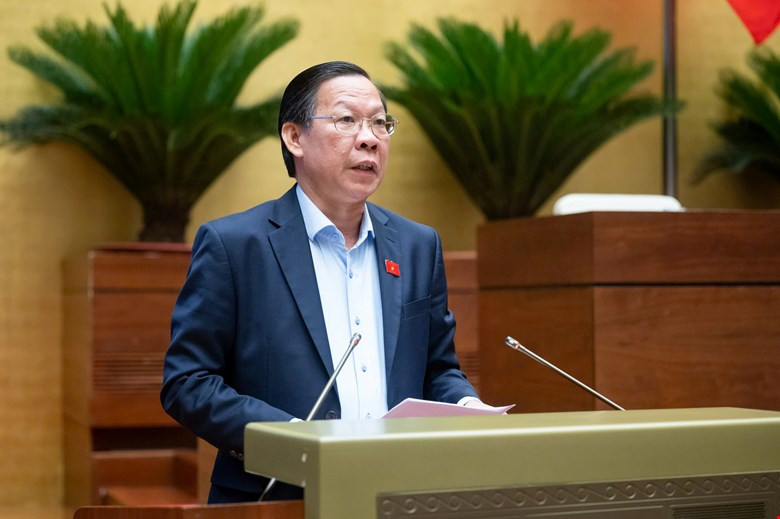On May 13, at a National Assembly session, Phan Van Mai, Chair of the Economic and Financial Committee, presented a report on the revised draft Law on Management and Use of State Capital in Enterprises.
The law aims to implement Resolution 12-NQ/TW, affirming that state-owned enterprises (SOEs) must operate under market mechanisms, prioritize economic efficiency, be autonomous, accountable, and compete equally with other sectors.

Responding to concerns over whether SOEs can operate in real estate, Mai clarified that the law does not prohibit such activities. However, real estate operations must be included in the company charter and approved by the state capital representative to ensure alignment with core business areas and limit off-core investments.
He also noted that the draft avoids blanket investment restrictions, ensuring consistency with the Constitution, Civil Code, and Enterprise Law.
The draft law’s Article 20 specifies that for leasing, mortgaging, or selling fixed assets, the board of members or company chair may decide if the asset's value does not exceed 50% of the enterprise’s equity or 50% of state investment capital in case of financial loss. Exceeding this threshold requires state owner representative approval on investment purpose, capital, funding, and implementation timeline.
Deputy Trinh Xuan An (Dong Nai) proposed a special mechanism allowing key SOEs to retain 100% of post-tax profits, especially those managing large-scale, strategic projects. He also suggested exempting defense-related enterprises from being evaluated under conventional capital preservation and growth standards.
Finance Minister Nguyen Van Thang emphasized a key legal shift: results of enterprise performance evaluations will guide decisions on appointing, reappointing, or terminating the contracts of individuals representing state capital. These evaluations will also determine employee bonuses and benefits.
He stressed that under the new law, the State only manages its share of capital, not the enterprise itself. “Once capital is contributed, it becomes the property of the enterprise. The State, like any investor, owns shares - not the assets themselves,” he said.
The law aims to reinforce enterprise autonomy and ensure fair competition among businesses with various ownership models.
Phan Duc Hieu, a standing member of the Economic and Financial Committee, cited legal precedent that any investor contributing capital or assets to a business transfers ownership to that business, receiving shares in return. “The State owns capital shares, not physical assets,” he stressed, and called for clearer definitions of state capital shareholding.
He also suggested adding legal provisions allowing the State to co-invest with others in establishing new businesses - something not yet included in the draft.
Regarding Article 20’s investment stipulations, Hieu raised a concern: “Should every operational activity now be treated as an investment project? That would create overwhelming red tape for firms with daily transactions.” He urged clearer distinctions to avoid unnecessary procedures.
Deputy Nguyen Thi Thu Ha (Quang Ninh) proposed distinguishing between two SOE types: one focusing on technology-innovation-digital transformation, and another on major infrastructure projects that stimulate economic growth.
Meanwhile, Deputy Le Thi Thanh Lam (Hau Giang) criticized some SOEs for poor transparency, especially those providing essential public services. She urged stronger requirements on information disclosure to improve public oversight.
Tuan Nguyen